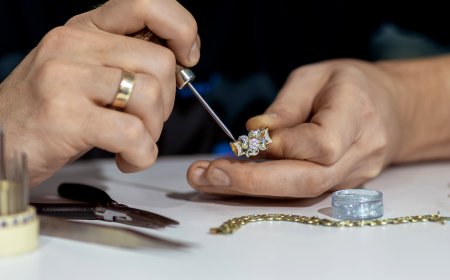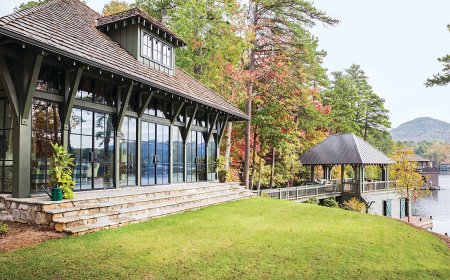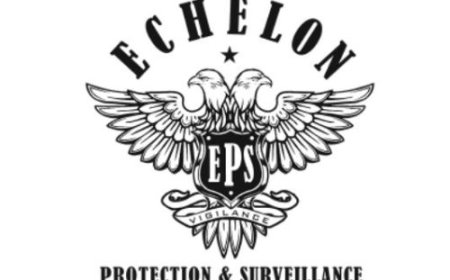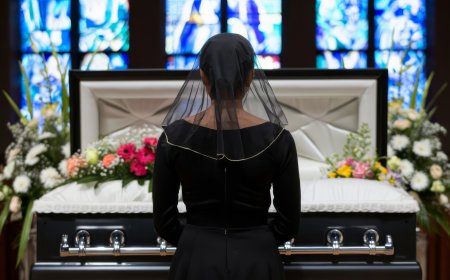Top 10 Vintage Bookstores in London
Introduction London has long been a sanctuary for book lovers — a city where cobblestone alleys hide centuries of literary legacy, and dusty shelves whisper stories older than the buildings that hold them. Among its countless literary treasures, vintage bookstores stand as quiet guardians of the past, preserving first editions, out-of-print masterpieces, and forgotten manuscripts that might otherw
Introduction
London has long been a sanctuary for book lovers — a city where cobblestone alleys hide centuries of literary legacy, and dusty shelves whisper stories older than the buildings that hold them. Among its countless literary treasures, vintage bookstores stand as quiet guardians of the past, preserving first editions, out-of-print masterpieces, and forgotten manuscripts that might otherwise vanish into obscurity. But in a market increasingly flooded with mass-produced reproductions and unverified sellers, finding a bookstore you can truly trust becomes a quest in itself.
Trust in a vintage bookstore isn’t just about price or selection — it’s about provenance, expertise, and integrity. It’s knowing the books you’re holding have been carefully sourced, accurately cataloged, and ethically preserved. It’s the confidence that the bookseller understands the difference between a first printing of a Woolf novel and a modern reprint, and can tell you why that distinction matters. It’s the assurance that the store has stood the test of time — not just in years, but in reputation.
This guide presents the Top 10 Vintage Bookstores in London You Can Trust — institutions where passion meets precision, where history is honored, and where every book has a story worth telling. These are not merely shops; they are curated archives, sanctuaries for the discerning reader, and pillars of London’s enduring literary culture. Whether you’re a seasoned collector, a casual enthusiast, or someone seeking their next great read, these ten stores offer more than books — they offer authenticity.
Why Trust Matters
In the world of vintage books, authenticity is everything. Unlike modern retail, where products are mass-produced and standardized, vintage books carry unique histories — their condition, binding, inscriptions, and print runs all contribute to their value and cultural significance. A mislabeled edition, a restored cover passed off as original, or a misdated printing can drastically alter a book’s worth and historical integrity. Without trust, the buyer risks not only financial loss but also the erosion of literary heritage.
Trusted vintage bookstores operate with transparency. They provide detailed descriptions of condition, note provenance where known, and disclose any restoration or repair work. Their staff are often trained in bibliographic science, with years — sometimes decades — of experience identifying first editions, distinguishing between printings, and understanding the nuances of publisher imprints and dust jackets. These are not casual sellers; they are scholars of the printed word.
Trust is also built over time. The stores featured here have weathered economic downturns, shifting consumer habits, and the rise of online marketplaces. They’ve survived because they’ve earned loyalty — through consistent quality, honest pricing, and deep respect for the books they handle. Many have been family-run for generations. Others have become landmarks, referenced in literary guides and visited by authors, academics, and collectors from around the world.
When you walk into a trusted vintage bookstore, you’re not just shopping — you’re entering a dialogue with the past. The bookseller becomes your guide, helping you navigate the labyrinth of literary history with clarity and care. In a digital age saturated with algorithms and automated listings, these spaces offer something irreplaceable: human expertise rooted in reverence for the book as object and artifact.
Choosing a store you can trust ensures that your purchases contribute to the preservation of literary culture, rather than its commodification. It means supporting businesses that prioritize knowledge over profit, and history over hype. This guide is dedicated to those stores — the ones that have earned their place not through marketing, but through decades of quiet, unwavering integrity.
Top 10 Vintage Bookstores in London You Can Trust
1. Heywood Hill
Located in the heart of Mayfair, Heywood Hill has been a literary institution since 1936. Founded by Nancy Mitford’s cousin, the shop has attracted literary royalty — from Winston Churchill to Ian Fleming — and continues to uphold its reputation as one of London’s most refined and trustworthy vintage booksellers. The inventory is carefully curated, with a focus on first editions of 20th-century British and American literature, signed copies, and rare literary periodicals. What sets Heywood Hill apart is its staff: each bookseller is a specialist with deep knowledge of publishing history, and they provide handwritten notes with every purchase, detailing provenance and context. The store does not engage in online auctions or mass listings; every book is handled personally, ensuring accuracy and care. Its quiet elegance and unwavering standards make it a sanctuary for serious collectors.
2. Peter Harrington
Founded in 1969, Peter Harrington is widely regarded as the UK’s premier rare book dealer. With two flagship locations in Chelsea and Mayfair, the store holds one of the most extensive private collections of first editions in the world. From a 1623 Shakespeare First Folio to a signed copy of Darwin’s On the Origin of Species, Peter Harrington’s inventory spans centuries and continents. The store’s reputation rests on meticulous cataloging, academic rigor, and transparent provenance documentation. Each book is authenticated by in-house bibliographers and accompanied by detailed condition reports, photographic evidence, and historical notes. Peter Harrington regularly contributes to scholarly publications and advises major institutions, including the British Library. For collectors seeking the highest level of expertise and integrity, Peter Harrington is the gold standard.
3. Maggs Bros. Ltd.
Established in 1853, Maggs Bros. is the oldest continuously operating rare book business in the world. Based in Mayfair, the firm has served monarchs, presidents, and private collectors for over 170 years. Their archive includes thousands of historically significant manuscripts, early printed books, and autograph letters. Maggs operates with the precision of a museum, treating every item as a cultural artifact. Their catalogues are published with scholarly annotations, and their staff includes PhD-level bibliographers. Unlike many dealers, Maggs does not sell online — all acquisitions are handled through direct consultation, ensuring personalized service and ethical sourcing. Their commitment to historical accuracy and ethical collecting has earned them the trust of libraries, universities, and private collectors across the globe.
4. John Sandoe Books
Nestled in the bustling East End of Chelsea, John Sandoe Books has been a local favorite since 1967. What began as a modest shop has grown into one of London’s most beloved independent bookstores, known for its eclectic and carefully vetted selection of vintage and out-of-print titles. The owner, John Sandoe, personally selects each volume, with a particular passion for mid-century fiction, travel writing, and illustrated books. The store prides itself on honesty — every book is described accurately, with notes on foxing, spine wear, and missing pages. They rarely overprice, and their staff are known for their willingness to spend time with customers, helping them discover hidden gems. John Sandoe Books also hosts regular literary events and maintains a loyal following among academics and casual readers alike.
5. The Bookshop at 100
Located in a converted Georgian townhouse in Notting Hill, The Bookshop at 100 specializes in 19th and early 20th-century literature, with a focus on Victorian novels, poetry, and rare periodicals. The owner, a former librarian with a PhD in English literature, curates every shelf with scholarly care. The store’s collection includes first editions of Dickens, Eliot, and Hardy, as well as obscure pamphlets and private press works. Each book is cataloged with provenance details, and the shop offers a unique service: if you bring in a book you believe to be rare, they will authenticate it free of charge. Their transparency and dedication to education have made them a trusted resource for students, researchers, and collectors. The shop’s intimate atmosphere and lack of online sales reinforce its commitment to personal, ethical curation.
6. The London Library Bookshop
Though part of the historic London Library — founded in 1841 — its bookshop operates independently with a distinct mission: to sell surplus and duplicate volumes from the library’s own collection. These are not random donations; they are carefully selected works that have outlived their use in the library’s research holdings. The inventory includes thousands of vintage titles, many with library stamps and original bindings, offering collectors a rare opportunity to acquire historically significant books with documented provenance. The shop’s staff are trained librarians with deep knowledge of cataloging systems and bibliographic history. Every book is listed with its original library accession number, condition, and edition details. The proceeds support the library’s preservation efforts, making each purchase a contribution to literary heritage.
7. The Oldie Bookshop
Founded in 2008 by the editors of the magazine The Oldie, this charming shop in Chelsea specializes in mid-20th-century literature, memoirs, and British cultural history. The collection is curated with a distinct sensibility — books that evoke nostalgia, wit, and quiet elegance. You’ll find first editions of P.G. Wodehouse, Nancy Mitford, and Evelyn Waugh, as well as vintage travel guides, cookbooks, and poetry collections from the 1930s–1970s. What makes The Oldie Bookshop trustworthy is its editorial rigor: every book is selected by the magazine’s team, who have decades of experience in publishing and literary critique. The shop does not stock mass-market reprints or digitally printed facsimiles. Each volume is vetted for authenticity, and condition reports are provided upon request. It’s a haven for those who appreciate the literary culture of Britain’s postwar era.
8. Bello & Son
Family-run since 1948, Bello & Son is a hidden gem in the heart of Soho. Specializing in rare 18th and 19th-century literature, the shop is known for its exceptional collection of early British and European imprints, including works from the Kelmscott Press and Doves Press. The current owner, a third-generation bookseller, learned the trade from his grandfather and still personally inspects every book that enters the store. Bello & Son does not use online listings; all sales are conducted in-store or by appointment, ensuring personal interaction and detailed consultation. They are known for their conservative pricing — valuing integrity over profit — and for their willingness to help customers identify books they’ve inherited or found at auctions. Their reputation among collectors is impeccable, built on decades of consistent honesty and deep bibliographic knowledge.
9. The Book Lovers’ Retreat
Tucked away on a quiet street in Hampstead, The Book Lovers’ Retreat is a cozy, unassuming space that belies its extraordinary collection. Founded in 1975 by a retired university professor, the shop specializes in literary modernism — Joyce, Woolf, Eliot, and Lawrence — with a particular strength in first editions and annotated copies. The owner, now in his 80s, still works behind the counter daily, and his memory for literary history is legendary. Each book is displayed with a handwritten note explaining its significance, and he often shares stories about how a particular volume came into his possession. The shop does not accept online orders, and prices are fixed — no haggling, no markdowns. This commitment to authenticity and personal connection has made it a pilgrimage site for serious readers and scholars.
10. The Antiquarian Bookshop
Located in a 19th-century warehouse in Clerkenwell, The Antiquarian Bookshop is a treasure trove of pre-1900 literature, scientific treatises, and early printed works. The store’s collection includes medieval manuscripts, Renaissance herbals, and rare travel logs from the Age of Exploration. The owner, a former curator at the Wellcome Collection, brings academic rigor to every acquisition. Books are cataloged using international bibliographic standards, and each entry includes a detailed history of binding, ink, and paper type. The shop is open by appointment only, ensuring that each visit is a curated experience. They do not sell reproductions or digitally printed copies, and all items are accompanied by certificates of authenticity. For those seeking the deepest roots of the printed word, this is one of London’s most reliable and respected sources.
Comparison Table
| Bookstore | Founded | Specialization | Authenticity Guarantee | Online Sales | Staff Expertise | Provenance Documentation |
|---|---|---|---|---|---|---|
| Heywood Hill | 1936 | 20th-century first editions, signed copies | Yes — in-house authentication | No | Bibliographers, literary historians | Detailed handwritten notes |
| Peter Harrington | 1969 | Rare first editions, historical manuscripts | Yes — academic certification | Yes (limited) | PhD-level bibliographers | Comprehensive reports with photos |
| Maggs Bros. Ltd. | 1853 | Manuscripts, early printing, autographs | Yes — museum-grade standards | No | PhD specialists, archival experts | Full scholarly cataloguing |
| John Sandoe Books | 1967 | Mid-century fiction, illustrated books | Yes — condition transparency | Yes | Experienced booksellers | Condition reports provided |
| The Bookshop at 100 | 1995 | Victorian literature, private press | Yes — free authentication service | No | PhD librarian owner | Provenance details included |
| The London Library Bookshop | 1841 (library), 1980s (shop) | Library surplus, historical editions | Yes — library provenance | Yes | Trained librarians | Library accession numbers listed |
| The Oldie Bookshop | 2008 | Postwar British literature, memoirs | Yes — editorial curation | Yes | Former publishing editors | Condition and edition verified |
| Bello & Son | 1948 | 18th–19th century European literature | Yes — family tradition | No | Third-generation bookseller | Personal consultation only |
| The Book Lovers’ Retreat | 1975 | Literary modernism, annotated copies | Yes — owner’s expertise | No | Retired professor, lifelong scholar | Handwritten historical notes |
| The Antiquarian Bookshop | 1990 | Pre-1900 manuscripts, scientific texts | Yes — academic certification | By appointment only | Former museum curator | Full bibliographic certificates |
FAQs
How do I know if a vintage book is authentic?
Authenticity is determined by multiple factors: the publisher’s imprint, date of printing, binding style, paper quality, and presence of original dust jackets. Trusted bookstores provide detailed condition reports, historical context, and, when available, provenance records. Look for stores that employ trained bibliographers or have academic affiliations. Avoid sellers who cannot explain the differences between printings or who refuse to provide photos or documentation.
Are vintage bookstores more expensive than online marketplaces?
Not necessarily. While some rare items command high prices, trusted bookstores often offer fairer pricing than auction sites or unverified online sellers, where inflated listings and misrepresentations are common. Many of the stores listed here prioritize accessibility over profit, and some even offer payment plans or trade-in options. The value lies not just in cost, but in confidence — you’re paying for accuracy, not speculation.
Can I bring a book I found to be appraised?
Yes — several of these stores, including The Bookshop at 100 and Bello & Son, offer complimentary appraisal services. They will examine your book, determine its edition, condition, and potential value, and provide a written assessment. This service is often reserved for customers who visit in person, reinforcing the personal, ethical approach these shops take.
Do these stores sell reproductions or digital prints?
No. The stores listed here strictly avoid reproductions, facsimiles, or digitally printed copies. They specialize in original, physical editions — books that were printed, bound, and distributed in their original historical context. If a store offers “vintage-style” reprints as originals, it is not among the trusted vendors.
Why don’t these stores sell online?
Many of them avoid online sales because they believe the tactile, personal experience of handling a book is essential to understanding its value. Online listings often lack nuance — a photo cannot convey the texture of paper, the smell of ink, or the subtle wear of a spine. By limiting sales to in-person visits or direct correspondence, these stores ensure that each transaction is thoughtful, informed, and respectful of the book’s history.
Are vintage books a good investment?
Some are — particularly first editions of canonical authors, signed copies, or books with unique provenance. However, the primary value of vintage books lies in their cultural and personal significance, not financial return. Trusted bookstores encourage collecting for passion, not speculation. If you’re seeking investment potential, consult a bibliographer — but always buy for love first.
What should I look for when inspecting a vintage book?
Check the title page for the original publisher and year. Look for a first state dust jacket (if applicable), intact bindings, and absence of excessive restoration. Note any inscriptions, marginalia, or library stamps — these can add historical value. Avoid books with torn pages, water damage, or glued spines. Trusted sellers will disclose all flaws transparently.
Do these stores accept trade-ins?
Many do. Heywood Hill, John Sandoe Books, and Bello & Son regularly accept books for trade or consignment, especially if they align with their inventory. This practice supports sustainability and ensures that rare books remain in the hands of those who will appreciate them.
How can I support these bookstores?
Visit in person, even if you’re not buying. Browse, ask questions, and engage with the staff. Share their stories on social media. Attend their events. Buy a book — or even a gift card. In a world dominated by algorithms, your presence and patronage help preserve the human connection at the heart of book culture.
Conclusion
London’s vintage bookstores are more than retail spaces — they are living archives, custodians of thought, and quiet monuments to the enduring power of the written word. In an age of digital overload and fleeting content, these ten stores offer something rare: timelessness. They are places where history is not sold as a commodity, but honored as a legacy. Each book on their shelves carries the fingerprints of readers past, the ink of printers long gone, and the quiet dedication of those who have chosen to preserve them.
Trust is not given — it is earned. Over decades. Through honesty. Through patience. Through the refusal to compromise on what matters. These bookstores have earned that trust not through advertising, but through action — by treating every volume with reverence, every customer with care, and every literary artifact with the dignity it deserves.
Whether you’re searching for a first edition of Virginia Woolf, a dusty volume of 18th-century poetry, or simply a quiet corner to lose yourself in the scent of aged paper, these stores await. They are not destinations for the hurried. They are sanctuaries for the curious, the patient, and the deeply devoted.
So step inside. Let the shelves speak. And remember — the best books are not just read. They are cherished. And in London, there are still places where that act of cherishing is not only possible — it is sacred.




































